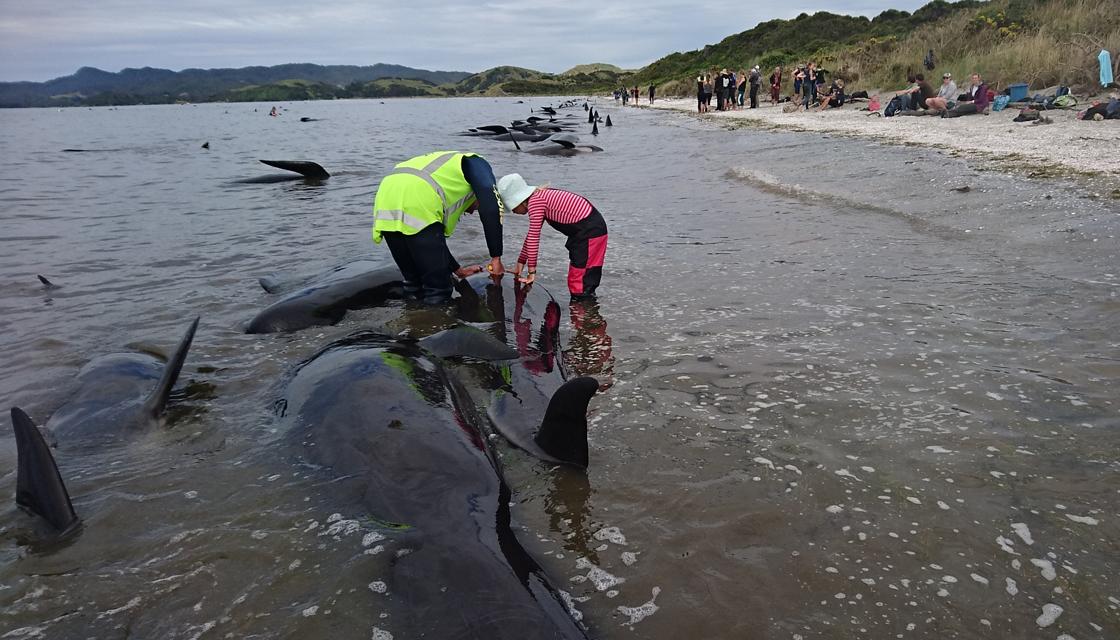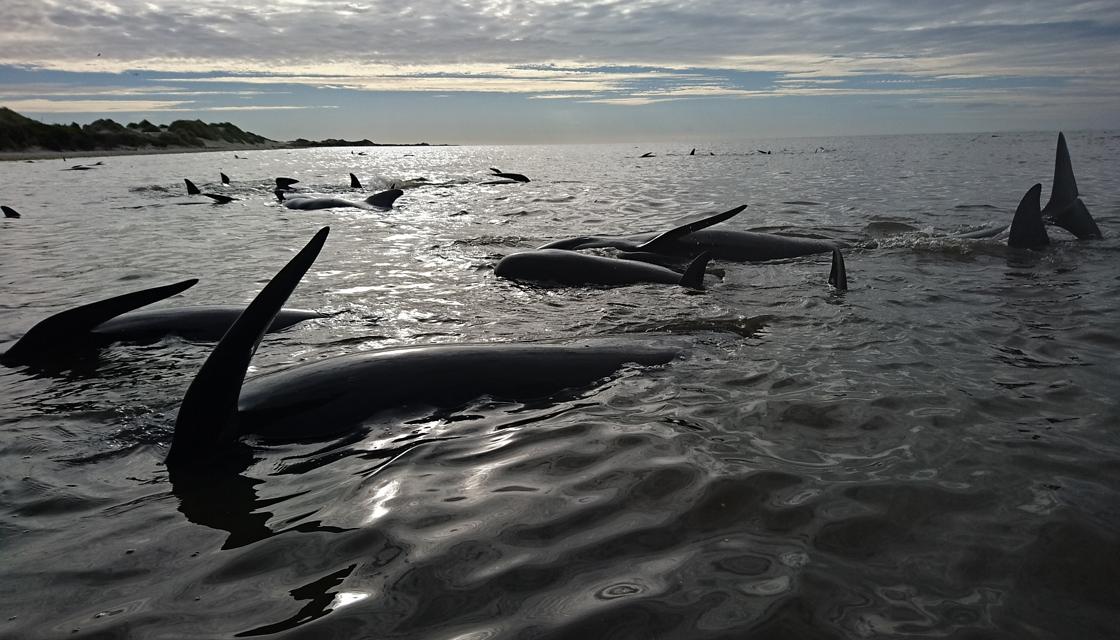As darkness draws over the stranded whales at Farewell Spit, rescuers face an anxious night as they wait to see how many will survive until Saturday morning.
Over 400 stranded in Golden Bay on Thursday night, and nearly 75 percent of those have died.
About 50 managed to make it into deep water on Friday, leaving around 90 still stranded about 150 metres from the water.

It's too dangerous for volunteers to try to work in the night, so the rescuers hope the whales will be able to re-float themselves and swim out with the high tide at 11:30pm on Friday night.
But the Department of Conservation says if the incoming tide pushes the whales over onto their sides, they could drown.
The rescue teams will need to wait until early Saturday morning to see how many are still alive, and further attempts to refloat them will wait until the next high tide on Saturday.

Dr Stuart Hunter of Massey University is heading to the scene to perform a necropsy (an autopsy but for animals) on some of the whales, to figure out why so many have stranded and died in such a short space of time.
The process involves examining the internal organs to look for signs of infectious disease and trauma.
Dr Hunter says "our goal is to try and understand if there's an underlying reason for this. Pilot whales are well insulated with blubber, so they will decompose very quickly, which means we need to perform necropsies as quickly as possible."
"It's difficult to say when we'll know for sure, but it's likely to be weeks rather than days."


Conservation group Forest and Bird believes it the stranding could be the third-largest recorded in New Zealand history.
The largest stranding ever recorded in New Zealand was 1000 pilot whales which beached in the Chatham Islands in 1918, followed by 450 of the same species on Great Barrier Island in 1985.

Golden Bay operations manager for the Department of Conservation (DoC), Andrew Lamason says Golden Bay is "almost a perfect trap for whales" because of its geography.
Whales frequently make their way into the shallow, hook-shaped bay and can get disoriented.
Newshub.

